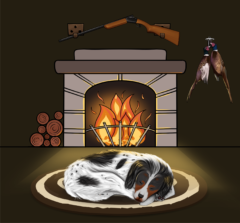As puppies find their way to new homes, it’s essential to address a common dilemma breeders encounter with new owners – setting realistic expectations.
The Ideal vs. The Reality
You visit the breeder’s home, and the puppies are all sociable and quiet. You see videos of them calmly enjoying a dog events. Everything seems perfect, and you bring your puppy home, excited for this new journey.
But then reality sets in. Your puppy might cry in the crate for the first few nights, leaving you exhausted and frustrated. The social butterfly now hesitates to meet your eager friends. Walking on a leash? It seems impossible. So how did your dream puppy turn into a nightmare?
Understanding a Puppy’s Worldview
Your new puppy has known only the breeder’s home since birth, comforted by the presence of its mother and littermates. Suddenly, it’s thrust into a completely different environment. It’s akin to you being dropped into an unfamiliar country where everything is alien.
The transition can be overwhelming, leading to stress that can manifest as reluctance to eat or play, apprehension at meeting strangers, or even physical symptoms like diarrhea, vomiting, and lethargy.
Helping Your Puppy Adjust: Practical Tips
So, how can you help your new family member adjust? Here are some practical tips:
-
Patience: Most puppies take 3-4 weeks to settle into their new homes. This isn’t a matter of days but weeks. Time and patience are crucial.
-
Limit Visitors: While it’s tempting to show off your new pet, limit visitors during the first week to give your puppy time to adjust. Plan on waiting 1-2 weeks before inviting people over.
-
Create a Safe Space: Restrict your puppy to a small area of the house initially. This reduces overwhelm and allows you to supervise them better.
-
Establish a Routine: Setting up a consistent routine can provide a sense of security for your puppy.
-
Training: Train your puppy at home, where they feel comfortable. Let them get used to the leash in a familiar environment, using treats to encourage them.
-
Bonding Takes Time: An immediate bond is unrealistic. Give your puppy time to see you as family.
-
Patience is Key: Outings should be planned at puppy speed. A short walk might be all your puppy can handle initially. Be patient and let them explore at their pace.
Remember, if the puppy was wonderful at the breeder’s but is struggling now, it’s your responsibility as an owner to help them adjust. This takes time, patience, and training. Each puppy is unique; don’t compare your current puppy to past pets. Try to understand things from your puppy’s perspective and adjust situations accordingly. With realistic expectations and positive experiences, your puppy will soon feel right at home.






Leave A Comment